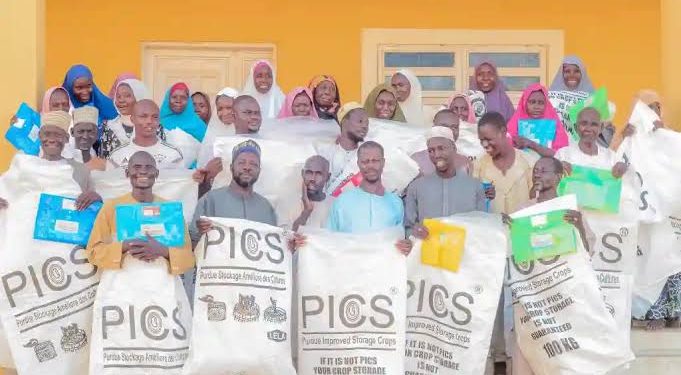In a significant move to strengthen food security and reduce post-harvest losses in Nigeria, the Food and Agriculture Organization of the United Nations (FAO) has launched an initiative to train 3,000 farmers and distribute 30,000 Purdue Improved Crop Storage (PICS) bags across the country. This intervention aims to tackle one of the major challenges faced by smallholder farmers in Nigeria—post-harvest losses caused by poor storage practices, pests, and lack of access to effective preservation tools.
The training programme, which will be carried out in collaboration with the Federal Ministry of Agriculture and Food Security and other key stakeholders, is part of FAO’s broader strategy to enhance resilience and promote sustainable agricultural practices among rural communities. Through hands-on training and practical demonstrations, selected farmers will be equipped with knowledge on best practices in post-harvest handling, crop storage techniques, and the use of the PICS bags for grains such as maize, millet, sorghum, and cowpea.
The PICS bags, developed by Purdue University in the United States, are hermetic storage bags designed to protect grains from infestation without the use of chemicals. Each bag is composed of three layers—two inner liners and an outer woven bag—that create an airtight environment capable of suffocating pests and preserving the quality of stored produce for up to one year. This technology is particularly useful for smallholder farmers who often rely on traditional methods of storage that expose their harvests to weevils, mould, and rodents.
According to the FAO, the distribution of 30,000 PICS bags is expected to directly benefit at least 3,000 households, enabling them to preserve their produce for longer periods, access better markets, and improve their income. The initiative also aligns with national efforts to boost local food production, reduce dependence on food imports, and tackle inflation driven by rising food costs.
By targeting rural farming communities, the FAO is not only addressing post-harvest challenges but also empowering farmers with the tools and knowledge needed to build more resilient agricultural systems. The organization emphasized that reducing food losses is one of the most cost-effective ways to enhance food availability, improve nutrition, and strengthen rural livelihoods.
This intervention comes at a critical time as Nigeria continues to grapple with food insecurity, rising commodity prices, and the effects of climate change on agricultural productivity.










